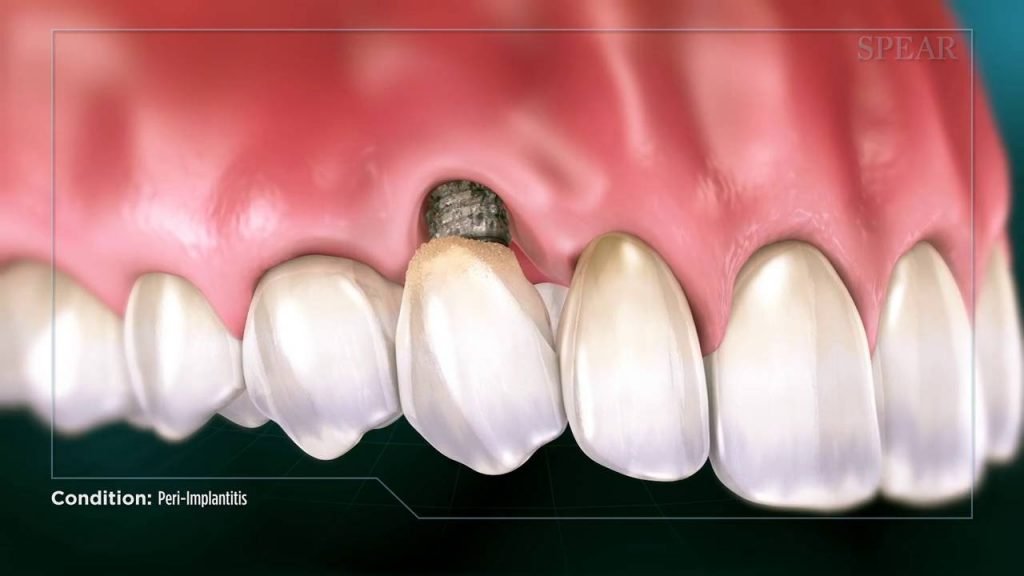Symptoms of peri-implantitis can vary in type and severity. Some symptoms include redness, inflammation, and bleeding of the surrounding gum tissue, deepening of the periodontal pockets around the implant, exposure and visibility of the underlying implant threads, loosening of the implant itself, and pus discharging from the tissues around the implant. In cases of more severe infection, the lymph nodes on your neck may become swollen as well.
The most common cause of peri-implantitis is tartar buildup at the implant site, which harbors toxin-emitting bacteria that cause irritation of the surrounding gum tissue, and ultimately results in tissue and bone loss. There are other possible causes that may apply depending on your situation.










